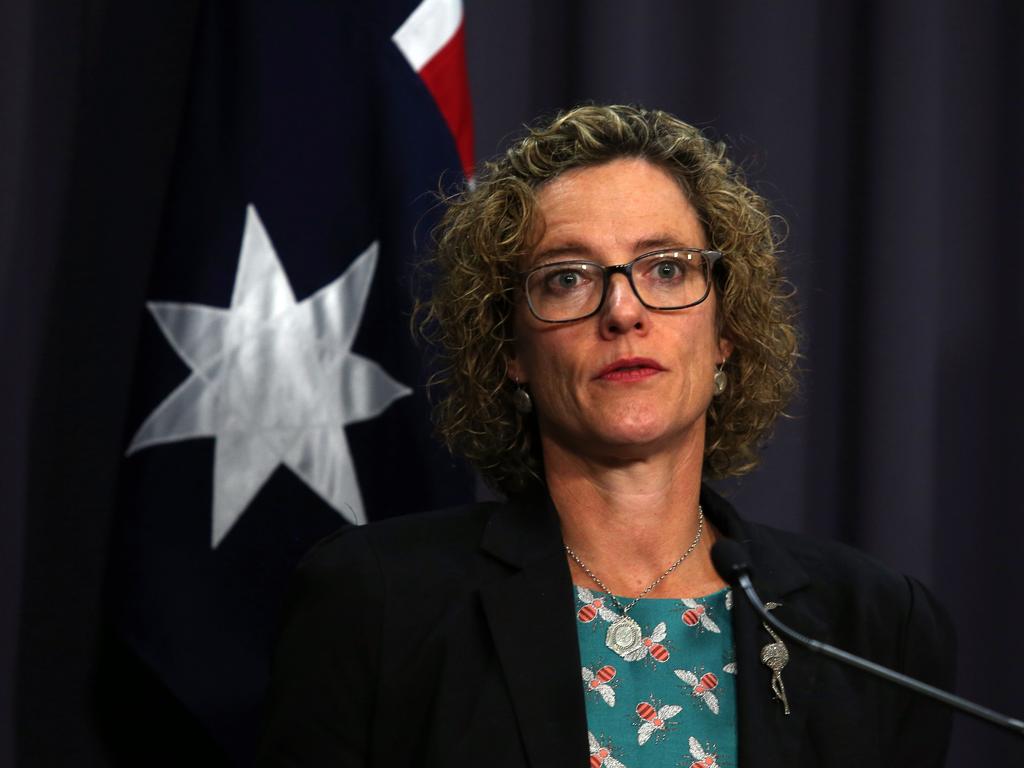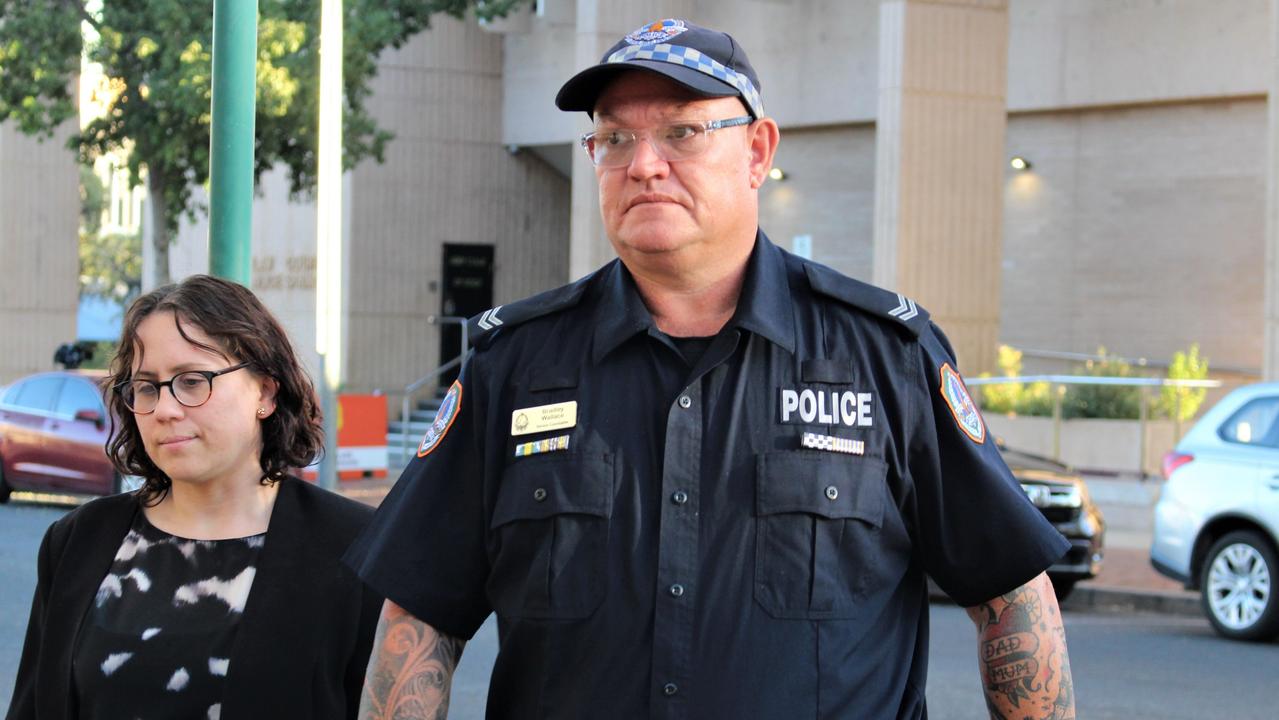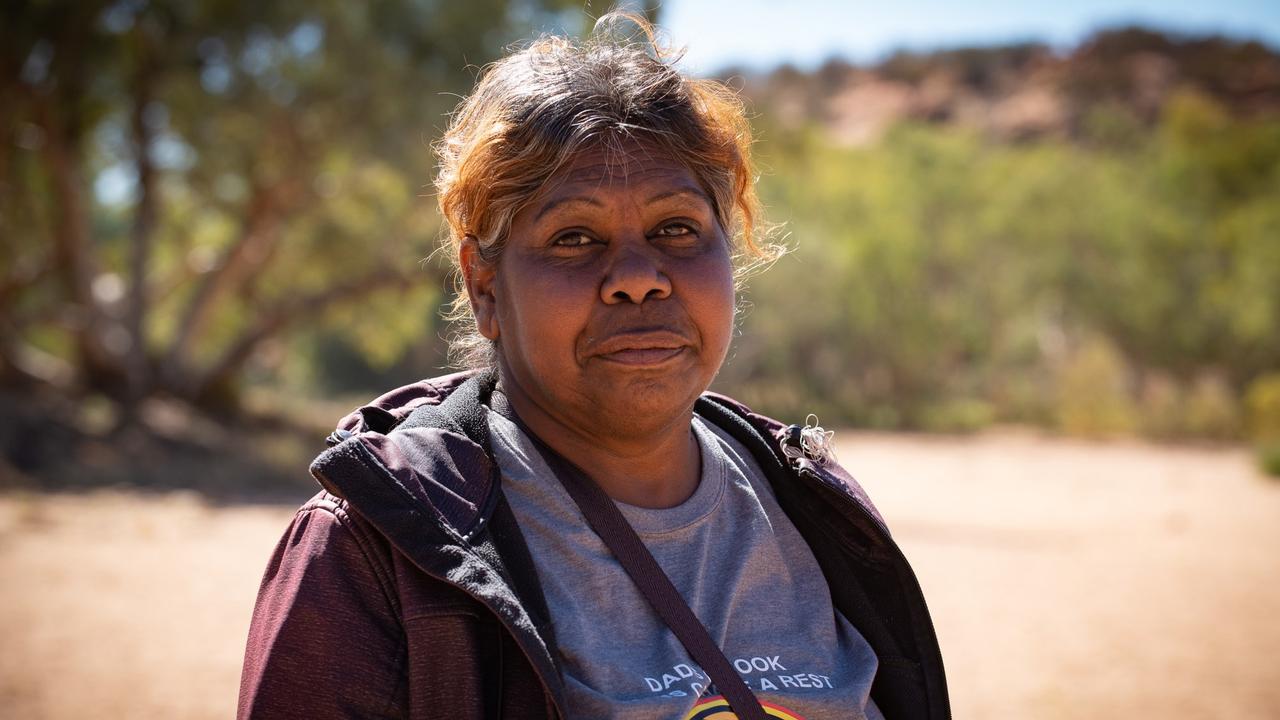Improving gender equality ‘nearly impossible’ until safety in Territory communities improves, DV inquest hears
A national body trying to change attitudes that lead to domestic violence has told a coronial inquest it’s ‘nearly impossible’ to work in Territory communities where people don’t feel safe.
News
Don't miss out on the headlines from News. Followed categories will be added to My News.
An inquest into domestic violence has heard ongoing discrimination against Aboriginal women is closely linked to high rates of youth crime in the Territory.
The head of a national body working to address underlying drivers of violence told the coroner it was “nearly impossible” to change attitudes towards women if “people aren’t safe”.
“If they’re in a state of grief or anxiety or trauma, it is nearly impossible to do primary prevention,” Our Watch CEO Patty Kinnersly said on Wednesday.
It comes the day after Central Australian Arrernte man and Senior Constable Brad Wallace told the inquest every single teenager he picked up who had been involved in a break-in came from a domestic and family violence home.
Since the inquest began in June multiple experts have told the court children’s exposure to domestic violence – even in utero – can have significant impacts on their brain development, health and behaviour.

Ms Kinnersly said local Territory organisations “know what is needed” to improve communities attitudes and engage young people around healthy relationships, but little would change until basic frontline service needs were met.
“Until we listen to those (organisations) and they have the financial commitment they need for that community to be a safe one – where women and children and men and everybody who’s working and living there is safe – it’s very difficult for strategies around gender equality in workplaces and sporting organisations to stick,” she said.
Ms Kinnersly said that as a result of high levels of trauma in the Territory, Our Watch’s national strategies to tackle domestic violence would be less effective, but that all Australians “have to take responsibility”.
“If you’re a woman who is also an Aboriginal woman you will be facing sexism and racism not only as an individual, but in the way that our community is set up,” she said.
“It’s about the ongoing impact of colonisation on Aboriginal and Torres Strait Islander women, but also the effect of colonisation on non-Aboriginal and Torres Strait Islander people – that’s the contentious one people have trouble wrapping their heads around.”
Indigenous women in the Northern Territory are killed by intimate partners at almost 13 times the rate of non-Indigenous women and men.
Earlier this week, national Domestic, Family and Sexual Violence Commissioner Micaela Cronin told the inquest Australia could come under international scrutiny unless rates of violence against Aboriginal and Torres Strait Islander women were addressed.
Ms Cronin agreed the issue was not the sole responsibility of Northern Territory agencies and institutions but one of “fundamental human rights”.
Nov 7: Cop calls out ‘sickening silence’ over women’s deaths
A Territory Police officer has called the silence surrounding Aboriginal women’s deaths “sickening”, calling on the media to speak up and fight for victims.
NT Police Senior Constable Brad Wallace told the coroner on Tuesday that Australia’s public outcry, anger and disgust when women and children were murdered was noticeably absent when the victims were Aboriginal Territorians.
Over her four-month inquest into the domestic homicides of four women, Coroner Elisabeth Armitage heard that the Territory lost an average of three women a year to domestic violence — 94 per cent of whom were Aboriginal victims.
Yet, Constable Wallace said there was little outcry when these victims were killed.
“I’ve worked on some jobs within the Northern Territory that I’ve expected there to be a very strong media and community response — and there’s been nothing,” he said.
“The silence sickens me.”

He said the killing of Aboriginal women and children was met with small stories in the local paper, a brief segment on the local bulletin — but barely a ripple outside Territory media.
The Arrernte man from Central Australia said he was unsure if it was the despair or apathy that led to silence, but said the lack of public outcry meant “real radical responses” were not pursued and ”horrific” levels of violence in Central Australia were being normalised.
“It’s almost a way of life,” he said.
“When I was a young person growing up, you didn’t want to be known as a ‘woman basher’, there was a stigma attached to being somebody that assaulted women.
“Nobody seems to bat an eyelid anymore.”
Constable Wallace — who has served with the Federal Police, in the Solomon Islands and Nauru — said it was only when he started working the police van in his Central Australian home town did he realise the “shocking” violence in the NT.
“The frequency and veracity of domestic violence associated crime in the Northern Territory is nothing short of horrific,” he said.
“It reflects strongly the significance of the current social, housing, health, education and justice issues faced by remote regional and urban Aboriginal women, children and men.”
Constable Wallace said the decline of services was obvious even within his own family, as there were older people who could speak multiple languages and were educated in both the Western and their Cultural system — yet their teenage grandchildren would struggle to write their own names.
The devastated family of Kumarn Rubuntja — one of the four women at the centre of the inquest — also echoed this call for services in remote communities to turn the tide of violence.

Cecily Arabie said the murder of her aunt robbed her community of a passionate anti-domestic violence campaigner, a town camp leader as well as a mother-figure and a personal “inspiration”.
Ms Arabie said she saw her “sisters, and cousins being broken” by her loss, and vowed to fight for immediate reform cultural awareness training for police and services and more remote services to stop men’s patterns as perpetrators.
“When Aboriginal men come out of prison, most come from remote communities, there is no support and no programs in their community,” the young Arrernte, Warlpiri woman said.
More Coverage
Originally published as Improving gender equality ‘nearly impossible’ until safety in Territory communities improves, DV inquest hears








